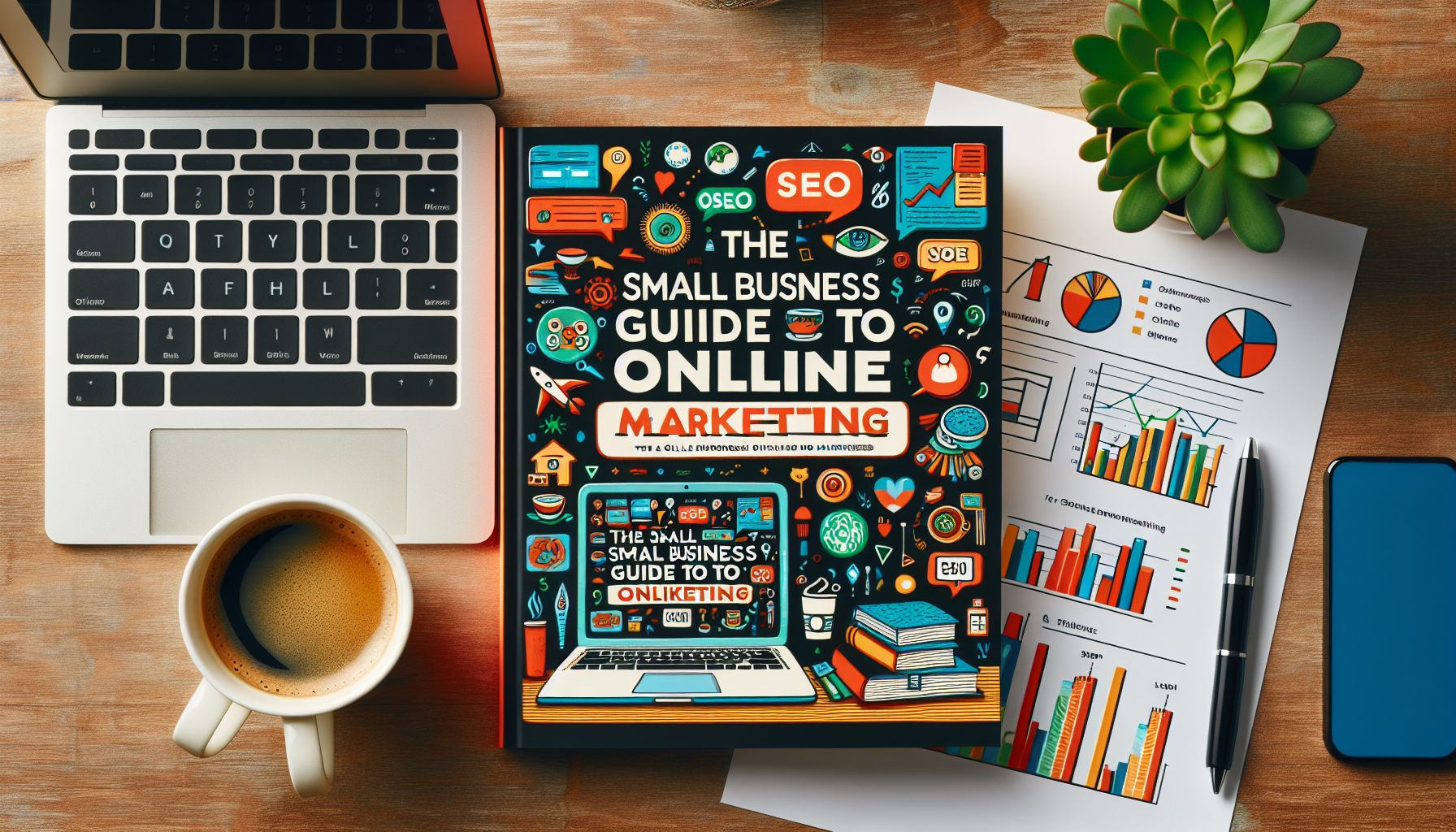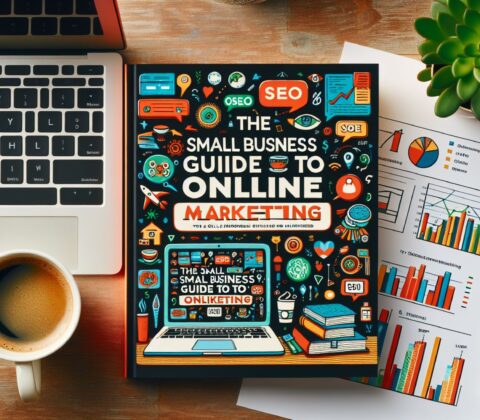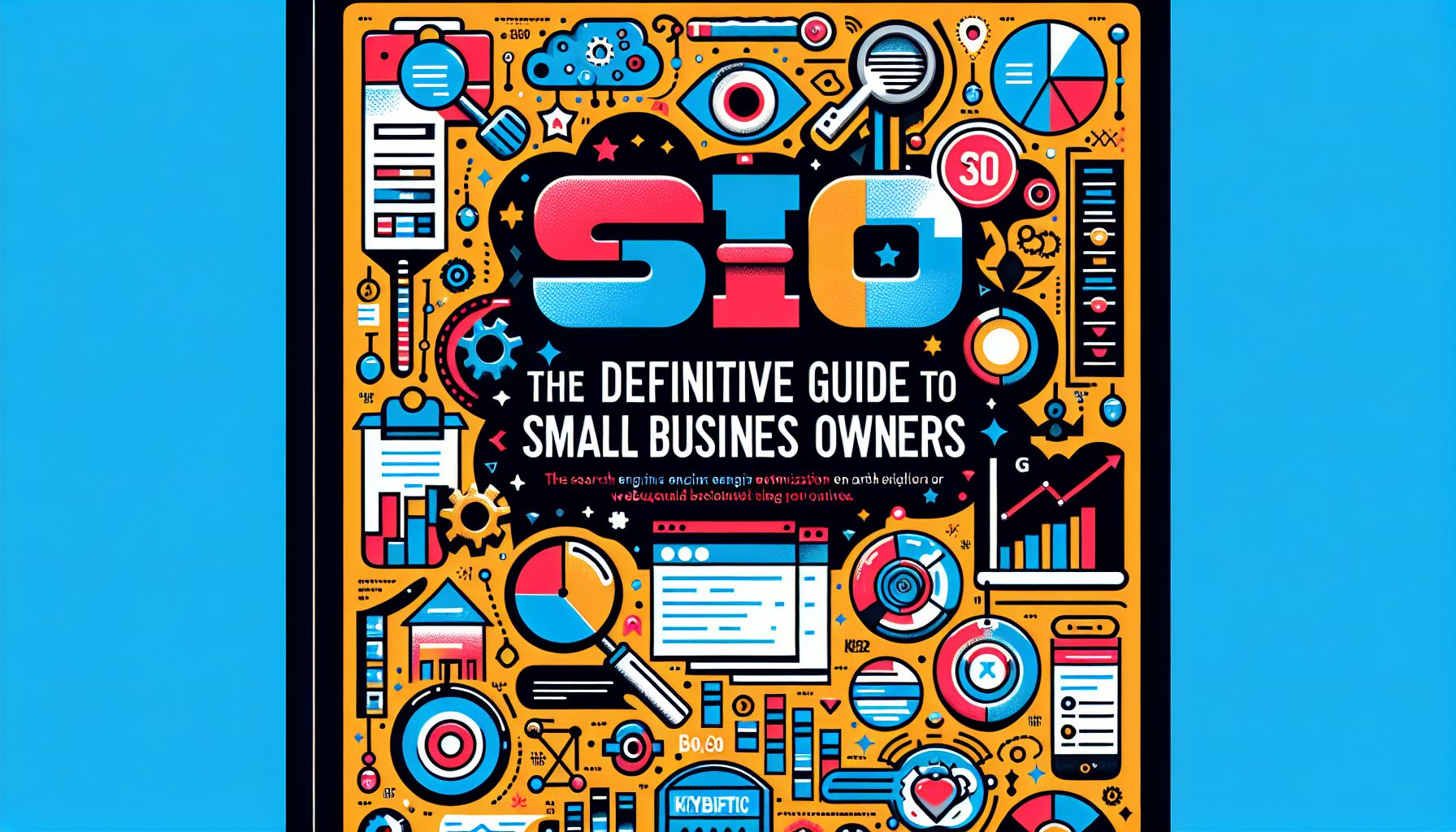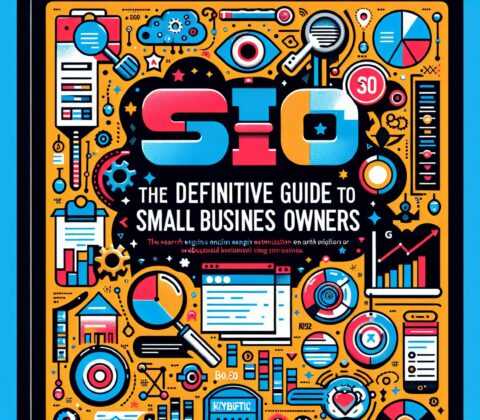Monthly Archives: February 2024


The Essentials of Online Marketing for Business Owners
As a business owner, it’s essential to have a strong online presence in today’s digital world. With more and more consumers turning to the internet to research products and services, online marketing has become a vital part of any business strategy. But with so many options available, it can be overwhelming to know where to start. In this article, we’ll cover the basics of online marketing for business owners in a business-casual tone, so you can effectively reach your target audience and grow your business.
Understanding Your Target Audience
Before diving into online marketing tactics, it’s crucial to understand your target audience. Who are your ideal customers? What are their preferences, needs, and pain points? By clearly defining your target audience, you can tailor your online marketing efforts to address their specific needs and attract more qualified leads.
Building a Strong Online Presence
The first step in online marketing is to build a strong online presence. This includes creating a professional website that is easy to navigate, visually appealing, and optimized for search engines. Your website is often the first impression potential customers will have of your business, so it’s important to make a good one.
In addition to your website, you should also establish a presence on social media platforms that are relevant to your target audience. This can help you engage with your customers, build brand awareness, and drive traffic to your website. Be sure to regularly update your social media profiles with valuable content and engage with your followers to build a loyal customer base.
Search Engine Optimization (SEO)
Search engine optimization (SEO) is another critical component of online marketing. SEO involves optimizing your website and content to rank higher in search engine results pages (SERPs). This increases the visibility of your business online and drives more organic traffic to your website.
To improve your website’s SEO, focus on creating high-quality content that is relevant to your target audience and incorporate relevant keywords throughout your website. You should also work on building high-quality backlinks to your website from reputable sources, as this can help improve your search engine rankings.
Email Marketing
Email marketing is a powerful tool for business owners looking to nurture leads and drive sales. By building an email list of interested prospects, you can send targeted emails that provide valuable content, promotions, and updates about your business. This can help you build relationships with your customers and drive more conversions.
When implementing an email marketing strategy, be sure to personalize your emails to each recipient, segment your email list based on demographics or interests, and track the performance of your campaigns to make data-driven decisions.
Paid Advertising
Paid advertising is another effective way to reach your target audience online. Platforms like Google Ads and social media advertising offer business owners the ability to create targeted ads that reach specific demographics, interests, and behaviors. This can help you reach a wider audience and drive more traffic to your website.
When running paid advertising campaigns, be sure to set clear goals, define your target audience, and regularly monitor and optimize your campaigns for maximum results.
Conclusion
Online marketing is a powerful tool for business owners looking to reach their target audience, drive more traffic to their website, and grow their business. By understanding your target audience, building a strong online presence, utilizing SEO, email marketing, and paid advertising, you can effectively reach your customers and drive more conversions. Remember to regularly evaluate your online marketing efforts, track your results, and make adjustments as needed to ensure success in the digital world.


Boost Your Business with Effective Online Marketing Strategies
Hey there, business owners! If you’re looking to take your business to the next level, then you’ve come to the right place. In today’s digital age, online marketing is more important than ever. With everyone spending so much time online, you have a prime opportunity to reach potential customers and grow your business. In this article, we’ll discuss some key online marketing strategies that can help you boost your business and stay ahead of the competition.
Know Your Audience
One of the most important aspects of online marketing is knowing your target audience. Who are your potential customers? What are their needs and preferences? By understanding your audience, you can tailor your marketing efforts to better resonate with them. Conduct market research, analyze data, and engage with your audience on social media to gather valuable insights.
Establish a Strong Online Presence
In today’s digital world, having a strong online presence is crucial for any business. This means having a professional website, active social media profiles, and engaging content. Your website is often the first impression that potential customers will have of your business, so make sure it’s modern, user-friendly, and optimized for search engines. Social media platforms like Facebook, Instagram, and LinkedIn are powerful tools for reaching and engaging with your target audience.
Search Engine Optimization (SEO)
SEO is the process of optimizing your website to rank higher in search engine results pages. By improving your website’s SEO, you can drive more organic traffic and attract more potential customers. Start by conducting keyword research to identify relevant keywords for your business. Then, optimize your website’s content, meta tags, and images to improve its search engine visibility. Regularly monitor your website’s performance using tools like Google Analytics and make adjustments as needed.
Content Marketing
Content marketing is all about creating and sharing valuable, relevant content to attract and engage your target audience. This can include blog posts, articles, videos, infographics, and more. By consistently creating high-quality content that resonates with your audience, you can establish your business as a trusted source of information and build relationships with potential customers. Use a mix of written and visual content to keep your audience engaged and interested.
Email Marketing
Despite the rise of social media and other digital marketing channels, email marketing remains an effective way to reach and engage with your audience. Build an email list of interested customers and prospects, and send them regular updates, promotions, and useful information. Personalize your emails, segment your list, and track your email campaigns to optimize their effectiveness. Email marketing is a great way to nurture leads, drive conversions, and build customer loyalty.
Paid Advertising
Paid advertising can be a powerful way to reach new customers and drive traffic to your website. Platforms like Google AdWords, Facebook Ads, and LinkedIn Ads allow you to target specific demographics, interests, and behaviors with your ads. Set clear goals for your paid advertising campaigns, track your performance metrics, and make data-driven decisions to optimize your ROI. Experiment with different ad formats, targeting options, and messaging to see what resonates best with your audience.
Social Media Marketing
With billions of people using social media every day, it’s essential for businesses to have a strong social media presence. Create profiles on relevant platforms like Facebook, Instagram, Twitter, and LinkedIn, and regularly post engaging content to connect with your audience. Use social media to share updates, promotions, behind-the-scenes looks, and customer testimonials. Engage with your followers, respond to comments and messages, and participate in relevant conversations to build relationships and loyalty.
Measure Your Results
Lastly, it’s important to regularly measure and analyze your online marketing efforts to see what’s working and what’s not. Use tools like Google Analytics, social media insights, and email marketing metrics to track your performance and ROI. Identify your key performance indicators (KPIs), set goals for improvement, and make data-driven decisions to optimize your marketing strategies. Continuously test and iterate on your campaigns to drive better results and stay ahead of the competition.
In conclusion, online marketing is a powerful tool for business owners looking to grow their businesses and reach new customers. By understanding your audience, establishing a strong online presence, and utilizing key marketing strategies like SEO, content marketing, email marketing, and social media, you can effectively promote your business, drive traffic to your website, and increase your revenue. Remember to measure your results, experiment with different tactics, and stay informed about the latest digital marketing trends to stay ahead of the competition. Ready to take your business to the next level? Start implementing these online marketing strategies today!


The Small Business Guide to Online Marketing
Running a small business comes with a lot of challenges, from managing finances to keeping up with competitors. In today’s digital age, having a solid online marketing strategy is crucial to the success of your business. Whether you’re selling products or offering services, reaching your target audience online can help you expand your customer base and increase sales. Here are some tips to help small business owners navigate the world of online marketing.
1. Build a Professional Website
Your website is the online face of your business, so it’s important to make a good first impression. Invest in a well-designed, user-friendly website that accurately represents your brand. Make sure your site is mobile-friendly, as more and more people are using smartphones and tablets to browse the web.
2. Utilize Social Media
Social media platforms like Facebook, Instagram, and Twitter are powerful tools for reaching potential customers. Create profiles for your business on these platforms and regularly post engaging content to keep your audience interested. Interact with your followers by responding to comments and messages, and consider running paid advertising campaigns to reach a larger audience.
3. Start a Blog
Blogging is a great way to establish your expertise in your industry and drive traffic to your website. Write about topics that are relevant to your business and provide valuable information to your readers. Regularly updating your blog can also help improve your website’s search engine rankings.
4. Invest in SEO
Search engine optimization (SEO) is the process of optimizing your website to rank higher in search engine results pages. By incorporating relevant keywords into your website’s content and improving its overall structure, you can increase your chances of being found by potential customers.
5. Email Marketing
Email marketing is an effective way to keep in touch with your customers and generate repeat business. Collect email addresses from your website visitors and send out regular newsletters or promotional offers to keep them engaged. Personalize your emails to make them more relevant to each recipient.
6. Collaborate with Influencers
Influencer marketing can help you reach a wider audience and attract new customers. Find influencers in your industry who have a large following and collaborate with them to promote your products or services. Make sure to choose influencers whose values align with your brand.
7. Monitor and Analyze
It’s important to constantly monitor and analyze the performance of your online marketing efforts. Use tools like Google Analytics to track website traffic, social media engagement, and email campaign results. By analyzing this data, you can identify areas for improvement and make adjustments to your strategy.
Conclusion
Online marketing can seem overwhelming, especially for small business owners with limited resources. However, with the right strategy and tools, you can effectively promote your business online and reach your target audience. By building a professional website, utilizing social media, starting a blog, investing in SEO, implementing email marketing, collaborating with influencers, and monitoring and analyzing your efforts, you can increase your online presence and grow your business. Don’t be afraid to experiment with different tactics to see what works best for your business. With time and effort, you can see real results from your online marketing efforts.


Maximizing Your Online Marketing Strategy as a Business Owner
As a business owner, you know how important it is to stay ahead of the curve when it comes to marketing your products or services. In today’s digital age, having a strong online presence is crucial for reaching your target audience and growing your business. But with so many options available, it can be overwhelming to know where to start. That’s why we’ve put together this guide to help you navigate the world of online marketing and maximize your success.
Know Your Audience
The first step in any successful marketing strategy is to know your audience. Take the time to research your target demographic and understand their preferences, behaviors, and needs. This will help you tailor your marketing efforts to resonate with your audience and drive engagement.
Create Compelling Content
Once you know who you’re targeting, it’s time to create content that will capture their attention. Whether it’s blog posts, social media updates, videos, or email campaigns, make sure your content is engaging, relevant, and valuable to your audience. Be authentic and showcase the unique qualities that set your business apart from the competition.
Utilize SEO
Search engine optimization (SEO) is a crucial component of any online marketing strategy. By optimizing your website and content for relevant keywords, you can improve your visibility in search engine results and attract more organic traffic. Make sure your website is mobile-friendly, loads quickly, and is easy to navigate to provide a positive user experience.
Engage on Social Media
Social media is a powerful tool for connecting with your audience and building brand awareness. Create profiles on platforms that are relevant to your target demographic and regularly share updates, promotions, and engaging content. Use social media to engage with your audience, respond to comments and messages, and build relationships with your customers.
Invest in Paid Advertising
While organic marketing efforts are essential, paid advertising can help you reach a larger audience and drive immediate results. Consider investing in pay-per-click (PPC) advertising, social media ads, or sponsored content to increase your visibility and attract new customers. Track your campaigns and analyze the data to optimize your ROI and make informed decisions about your advertising budget.
Measure Your Results
One of the most critical aspects of online marketing is tracking your performance and measuring your results. Use tools like Google Analytics to monitor your website traffic, engagement metrics, and conversion rates. By analyzing this data, you can identify what’s working well and where you can improve your marketing efforts to achieve your business goals.
Stay Updated on Trends
The world of online marketing is constantly evolving, with new trends and technologies emerging regularly. Stay updated on the latest industry news, best practices, and trends to ensure you’re making the most of your marketing efforts. Attend webinars, read industry blogs, and network with other business owners to stay informed and inspired.
Conclusion
Online marketing is a powerful tool for business owners looking to grow their businesses and reach new customers. By knowing your audience, creating compelling content, utilizing SEO, engaging on social media, investing in paid advertising, measuring your results, and staying updated on trends, you can maximize your online marketing strategy and achieve your business goals. So don’t wait – start implementing these tips today and watch your business soar to new heights!


The Definitive Guide to SEO for Small Business Owners
Hello small business owners! If you’re looking to boost your online presence and attract more customers to your website, then you’ve come to the right place. Search Engine Optimization (SEO) is a powerful tool that can help your business climb the rankings on search engines like Google and reach more potential customers. In this guide, we’ll break down the basics of SEO and provide you with some actionable tips to get started.
What is SEO?
SEO is the process of optimizing your website to increase its visibility in search engine results. When someone searches for a product or service that you offer, you want your website to appear at the top of the search results. This is important because the majority of users only click on the top few results, so if your website is buried on page 5, chances are that potential customers won’t find you.
Why is SEO important for small businesses?
As a small business owner, you may not have the budget for a big marketing campaign, but that doesn’t mean you can’t compete with larger companies online. SEO levels the playing field by giving you the opportunity to reach a wider audience without breaking the bank. By optimizing your website for search engines, you can drive more traffic to your site, increase your brand visibility, and ultimately, boost your sales.
How to get started with SEO
Now that you understand the importance of SEO for small businesses, let’s talk about how you can get started. Here are some key steps to take:
1. Conduct keyword research
Keywords are the foundation of SEO. These are the words and phrases that users type into search engines when looking for products or services like yours. By targeting the right keywords, you can attract more relevant traffic to your site. Use tools like Google Keyword Planner or SEMrush to identify high-traffic keywords in your industry.
2. Optimize your website
Once you have your list of keywords, it’s time to optimize your website. Make sure your keywords are included in your page titles, meta descriptions, headings, and body content. Create high-quality, relevant content that provides value to your audience. Also, pay attention to your website’s loading speed and mobile-friendliness, as these are important ranking factors.
3. Build quality backlinks
Backlinks are links from other websites that point back to your site. They are a crucial part of SEO because they signal to search engines that your site is trustworthy and authoritative. Reach out to industry influencers, partner websites, or local directories to build quality backlinks to your site.
4. Monitor and analyze your results
SEO is an ongoing process, so it’s important to monitor your progress and make adjustments as needed. Use tools like Google Analytics to track your website traffic, keyword rankings, and conversion rates. Analyze this data to identify what’s working and what’s not, so you can continue to improve your SEO strategy.
Conclusion
SEO is a valuable tool for small business owners who want to improve their online visibility and drive more traffic to their website. By understanding the basics of SEO and implementing a strategy tailored to your business, you can attract more customers and grow your business online. Remember, SEO is a long-term investment, so be patient and stay consistent with your efforts. Good luck!